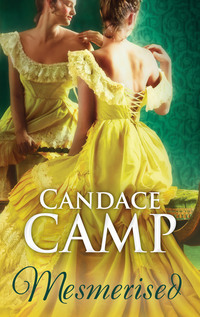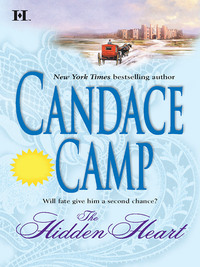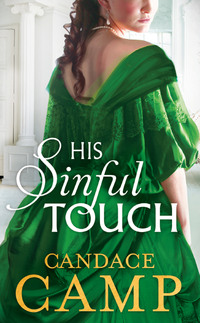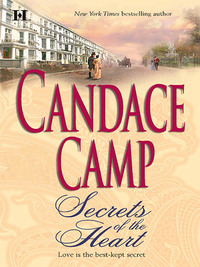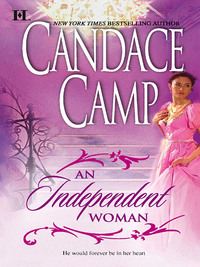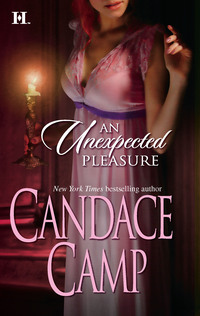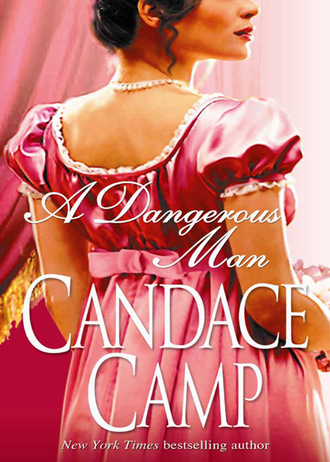
Полная версия
A Dangerous Man
THE SOUND OF WHEELS on the driveway outside roused Anthony from his reverie. His sister’s carriage had arrived. He watched as a footman hurried forward and let down the step of the carriage, opening the door to help his sister down.
Honoria, Anthony saw, was dressed all in black, her figure still slim, though she had reached middle age. She looked touchingly fragile. A heavy mourning veil was draped over her hat, but as she came up the steps, she reached up and turned it back, so that it fell down on either side of her face in a flattering manner. Honoria always wanted to make a statement, but not, of course, to the detriment of her looks.
Anthony repressed the cynical thought, reminding himself that his older sister had recently lost her only son and had every right to be in the depths of sorrow—even if she did mourn Sir Edmund to the utmost effect.
He strode out into the entryway to greet her, schooling the impatience out of his face and voice. “Honoria.”
“Oh, Anthony!” Tears filled her limpid blue eyes, and she held out both her hands to him, her body somehow bending a little in such a way as to hint that she might faint.
Anthony took her hands in his, and led her quickly into the drawing room and over to the sofa. He had had enough experience with his sister not to allow her to develop her scene to its fullest extent.
“What brings you here today?” he asked, cutting to the heart of the matter.
“Oh, Anthony,” the older woman repeated, one hand going to her heart. She looked up into his face. “That woman murdered my son!”
CHAPTER TWO
HIS SISTER’S WORDS LEFT Anthony speechless.
He did not have to ask what woman she meant. There was only one—at the moment—who earned the title of That Woman, always pronounced in the most scathing of accents. However, even for Honoria, the accusation of murder seemed excessive.
Anthony frowned. “What basis do you have for thinking that? You cannot go about accusing people without any reason.”
“She has written me. She is coming back here.”
“It would seem the natural thing to do, Honoria,” Anthony pointed out, wondering if this could possibly be all that had set his sister off.
“Natural? There is nothing natural about any of it,” Honoria snapped, in her annoyance casting aside the mantle of wilting sorrow. “She is bringing Edmund’s ashes. His ashes!”
“But, Honoria, isn’t this where you would want Edmund to—”
“Yes, of course, this is where I want my son.” She raised the handkerchief to her eyes again. “This is where I want him buried. But she has denied me even that solace. She burned him, Anthony!”
“Yes, Honoria, I know.”
“Do you understand the horror of that? There is not even the shell of him left to bury in the Scarbrough mausoleum. It was wicked of her. Wicked! First she took him to that awful country, so far from home. And she did it only to spite me. I know it. And now…now that he has been taken from me forever, she deprives me of even this comfort. It is outside the bounds of decency. It is sacrilegious!”
There was, Anthony knew, a good deal of religious feeling against the immolation of a body. However, it was the first time he had heard of his sister being in any way religious.
He said only, “Wouldn’t you rather have his ashes here than have his body buried in Naples?”
Honoria cast him an irritated look. “That is not the point. He should not have been there in the first place. He should have been here where I could look after him. That is why she took him to Italy—to keep him from me. She knew that if she separated him from me and his family, no one could protest anything that happened to him. If only he hadn’t gone to Italy, none of this would have happened. He wouldn’t be dead now.”
She began to weep again. Anthony sighed.
“Edmund was a grown man, Honoria. She could not make him go. And we could not keep him here,” he pointed out.
“You could have made more of a push to stop him.”
“How was I to foresee that Edmund would be in a boating accident there?” he replied reasonably, his words as much for himself as for his sister. “I had never known him to show a preference for sailing.”
“That is just it!” Honoria said triumphantly, her eyes lighting now with fervor. “Edmund abhorred such activities. You know that. You remember how he was about riding. Or any sort of sport.”
“Yes.”
“Well? Don’t you see? How do we know that Edmund died in a sailing accident?” His sister went on. “All we have saying so is the letter that she wrote me!”
Anthony hesitated. His sister was often hysterical and given to dramatics, but he could not help but think that she had a point. It was very odd that Edmund would have taken up sailing. Edmund had found the desire for outdoor activities largely incomprehensible in others and absurd for himself. His lungs had always been too weak for him to engage in any strenuous physical activity, and the thought of perhaps injuring his hands and being unable to play his music had filled him with horror.
“Why else would she have had his body burned?” Honoria saw Anthony’s hesitation and pressed her advantage. “It is bizarre. Unnatural. Why would she do it—unless she had something to hide? A dead body can be dug up. Poison can be found in a person’s body even after they are dead. I have heard it.”
“Yes, that’s true.”
“But if there is no body to exhume, no one could ever find the poison. Or a crack in his skull or some other injury. No one could prove that he did not die in a boating accident.”
“But why would she kill him?” Anthony found it hard to believe that Eleanor, however grasping she might be, was a murderer.
Honoria sent him a scathing look. “His money, of course.”
“She already had that. And I cannot imagine that Edmund was a demanding husband.”
“What reason does any woman have to do away with her husband?” his sister replied matter-of-factly. “Because she has found another? Because she no longer wants to have to ask him for money? Because he refuses to allow her to do exactly as she pleases? It would not surprise me that when she married him, she thought his weak lungs would carry him off within a few months, but then Edmund did not die. So she decided to help him along.”
“Honoria…”
“I am not being foolish, Anthony. Stop being a man, and look past her pretty face and elegant figure. Women are capable of killing to get what they want.”
“I am sure they are. But there is no reason to think that she did.”
“I believe Edmund had discovered what she was like. Anthony, he cut her out of his will. Why else would a man do that except that he knew she was a rapacious harpy who married him for his money? Or that she was having an affair with another man? Perhaps both.”
“Edmund cut her from the will?”
“Yes. He did not leave her a cent.”
Anthony scowled. It would take something very compelling to make a man like Edmund leave his wife nothing to live on. “Still, Honoria, that would argue against her killing him. She would get nothing.”
“Well, she may not have known that before she murdered him. She might not have realized he had changed his will. Besides, there is a way that she can get to his money. Edmund left everything to his sister—outside of his entailed estate, of course, which goes to Sir Malcolm. Why he would have done that, I do not know. I am his mother, after all, and—”
“He left you nothing?” Anthony asked skeptically.
“Oh, he left me a bit,” Honoria allowed, waving it away. “A mere pittance, really. However, that is a mother’s lot, I suppose.” She released the sigh of a martyr.
“But how does this help Lady Eleanor?” Anthony asked, dragging Honoria back to the subject at hand.
“He left control of the trust to her!” Honoria said indignantly. “Even though I am Samantha’s mother, he did not make me guardian of her money until she comes of age. He left That Woman as sole trustee!”
“Why would he cut Lady Eleanor out of his will, then put her in charge of Samantha’s money for the next six years?” Anthony asked.
“I don’t know. Edmund was never one who understood money.”
Anthony thought that her statement was a bit of the pot calling the kettle black, but he wisely refrained from pointing this out.
“You have to see what an opportunity this presents for her to siphon off money from the trust,” Honoria told him. “She wrote me saying she would ‘explain’ the trust to me when she brings poor Edmund’s ashes home. I do not need any ‘explanation.’ It is quite clear to me what she intends to do. My poor daughter and I will live in poverty, while she bleeds Samantha’s trust dry.”
“Honoria, calm yourself. I will not let that happen,” Anthony promised her grimly. Even allowing for Honoria’s usual gift of hyperbole, Anthony was troubled by what she had told him. It did not make sense, really, but neither could he ignore Honoria’s theories. If Lady Eleanor did indeed have control of Samantha’s money, she could easily take out a great deal of it without anyone’s noticing. And there were several suspicious things about Edmund’s death.
“But how can you stop her? She has gotten away with murder, and she has control over Samantha’s money.”
“I will go to see the woman,” he told Honoria. “And I will make sure she realizes that if anything is amiss, she will have to answer to me.”
ELEANOR STEPPED DOWN out of the carriage and simply stood for a moment, looking up at her house. It was an elegant white stone structure, with clean, symmetrical lines, and it warmed her heart to look at it again. It had been almost a year since she had been here, and it wasn’t until she saw it again that she realized how much she had missed it.
The children bounced out of the carriage after her, letting out a whoop at the freedom after being confined in the carriage all day. “Look! We’re home!”
Their amah, a small, quiet Indian woman named Kerani, followed them at a more sedate pace. “Wait, please,” she called after them softly, and it was a measure of their affection for her that they waited at the bottom of the stoop, bouncing up and down, as she walked over to join them.
The front door was opened by a grinning footman, who stood aside to let Bartwell exit the door first. “Miss Eleanor!”
Bartwell’s well-worn face was creased with a smile. One would have thought, Eleanor told herself affectionately, that it had been months since her old friend and butler had seen them, rather than the few days it had actually been. The servants had gone ahead to open the house and prepare it as soon as their ship had pulled into port, while she and the children had stayed behind for a few days. It had given the children a much-needed respite from traveling. The days cooped up on the ship they had taken from Italy had left them bored and full of pent-up energy. It had also served, much to Eleanor’s delight, as a means of breaking free of the smothering company of Mr. and Mrs. Colton-Smythe.
Hugo Colton-Smythe, a middle-aged cousin to a minor baron and a lifelong civil servant, and his wife, Adelaide, had been traveling on the same ship home from Naples to England as Eleanor, and they had taken it upon themselves to provide her with their respectable chaperonage. Only six months a widow, she was not, they were sure, up to dealing with all the exigencies of life, even the restricted sort of life aboard ship, and certainly she should be shielded from the importunate advances of the other passengers, many of whom were foreigners, and several of whom, they were sure, were adventurers seeking out a vulnerable wealthy widow.
Eleanor knew that kindness had been their main motive—and ignored the uncharitable thought that they were almost as interested in being able to drop into conversation little tidbits, such as, “When we were traveling with Lady Scarbrough…” However, she had found it an ever-increasing chore to put up with their mundane conversation and stultifying outlook on life.
She had been afraid that they would want to ride on with her to London, and for that reason, the thought of spending a few extra days in port while Bartwell saw to the house had seemed a godsend to her.
“Bartwell,” she greeted the butler with a happy smile and a quick hug. Most people, she knew, found her choice of butler strange. He was a retired pugilist who had worked for her father since Eleanor was a child, and he was as fond of her as if she had been his own daughter. He had accompanied her when her father had sent her to school in England when she was fifteen, and she had been grateful for his companionship as much as for his protection. “I trust everything is in order.”
“Oh, the usual, miss,” he told her with a grin. “That Frenchified cook of yours is throwing a fit. But we’ve got the house all tidy and ready for you and the little ones.”
He turned to the little ones in question, nodding his head in polite greeting to the shy, soft-spoken Indian woman before inviting Nathan to show him his boxing form, holding up his hands as targets, then admiring Claire’s new bonnet.
Eleanor reached back into the carriage and pulled out the teak box that had traveled on the seat beside her all the way from the coast. It was dark, made of the finest wood and beautifully carved, and its hinges and fastening were fashioned of gold.
Swallowing the lump that rose in her throat, Eleanor murmured, “You’re home at last, my dear.”
“Miss Elly,” a deep voice behind her said. “Welcome home. Here, let me take that for you.”
Eleanor turned, smiling. “Hello, Zachary. It is good to see you.”
Zachary was another of her employees whose presence in her household was the focus of much gossip, Eleanor knew. His skin was dark—not much lighter, in truth, than the box she held in her hands—and because of this, the ton found it scandalous that Zachary was not a liveried servant but Eleanor’s man of business. Zachary and his mother had been slaves, belonging to a Southern man whom Eleanor’s father had been visiting. Eleanor’s father had purchased both the boy and his mother, and had freed them when he returned home. Zachary’s mother had become the cook in her father’s home, but Mr. Townsend, seeing the young boy’s intelligence, had paid for Zachary to be educated. He had worked for Mr. Townsend after he had gotten out of school, and upon her father’s death a few years ago, he had come to work for her, handling the details of Eleanor’s business affairs.
She handed the box over to her business assistant without hesitation. Zachary and Bartwell were two of the people she trusted most in the world, the other one being her dear friend Juliana. Moreover, Zachary had admired her husband’s talent and had spent more than one evening discussing music with him. “Put this in the music room, please.”
“Of course.”
Eleanor went into the house, the others following her, and there she found the remainder of the servants lined up to greet her. She was tired, but she was not one to shirk her duty, so she spent time with each of them, greeting the ones who had returned with her from Italy by name and letting Bartwell introduce her to those whom she did not know.
The children ran off upstairs, and Eleanor, after handing her hat and light traveling cloak to a footman, went down the hall to the music room. She closed the door after her and stood for a moment, simply looking around. This was the room where Edmund had spent most of his time, and it was the one she most closely connected with him. She felt a pang of sadness, looking at the piano and not seeing him sitting there, as he had a hundred times in the past.
She walked over to the piano and sat down on the padded bench. The music stand was empty, the candelabras holding unburned candles. Clearly the room had been kept up—there wasn’t a trace of dust upon the instrument—but it had the empty feel of a place unoccupied.
Eleanor thought about the first time she had seen Sir Edmund. It had been at a musicale at Francis Buckminster’s home. Eleanor had long been a patron of the arts. Though she did not possess any sort of artistic talent herself, her soul thrilled to the works of those who were talented in those areas, and she had always used part of her fortune to patronize the arts. Wherever she had lived, New York or London or Paris, she had been well-known for her fashionable salon attended by other patrons of the arts, as well as by the writers, composers and others whom she admired. She did not move among the most aristocratic circles in London, for despite her years at a finishing school in England, her American background and the trade-based origins of her family’s wealth would forever make her socially inferior to the elite who ruled London society. But she had a broad circle of friends and acquaintances that consisted of artists and their patrons, so she enjoyed a lively social scene frequented by people from all strata of society.
Sir Edmund had performed one of his sonatas at the musicale, and Eleanor had been struck not only by his virtuosity on the piano but also by the beauty of the piece, which had brought her almost to tears. She had realized almost immediately that this pale, frail blond man was a musical genius.
Over the course of the next few weeks, the two of them had become friends. Unlike most of the artists she knew, he was not in need of financial help. But as she had gotten to know him better, she had realized that he was nevertheless in great need. His health was obviously precarious, for he was wracked by fits of coughing that left him weak and suggested to Eleanor that he was likely consumptive. The damp climate of England could not be good for his health, she thought, but when she had suggested that he travel to sunnier climes, he had only smiled wistfully and told her that he could not.
The reason he could not move, Eleanor soon learned, was his mother, a grasping, demanding, domineering woman who both leaned upon and dominated her only son. Whenever Sir Edmund left his home in the Kentish countryside to live on his own in London, he was soon bombarded with notes from his mother, all filled with problems that only he could solve or accounts of her loneliness without him. This servant or that was stealing from her; the estate manager would not give her enough money to run the house; his younger sister cried into her pillow at night, missing her dearest brother. The result was that Sir Edmund would go rushing home every week or two, abandoning the opera upon which he was working. Worse still, Lady Scarbrough would come to London to visit, and when she was there, she demanded that her son accompany her to balls and soirees, escort her to Almack’s and meet a number of marriageable women, all handpicked by Lady Scarbrough herself.
Sir Edmund invariably did as his mother bid, again neglecting his music to perform a number of chores that could have been done by any ninny, in Eleanor’s opinion. To make up for the lost time, once she left he would then work late into the night on his music, free at last of his mother’s presence. As often as not he forgot to eat, which did little to improve his health.
His servants were sloppy, his household poorly run, and he seemed to have only the vaguest idea about his income, whether from the estate that came with his title or from the money that had been left to him by his maternal grandfather. Such inattentiveness to the necessary details of his life did not surprise Eleanor; she was accustomed to artists and the way they often muddled through the practicalities of life.
She wished that she could simply take charge of his life. It was difficult for her to stand aside and watch people’s lives run off course, and taking hold of a situation and making it work right was something she was extraordinarily good at. There were those, she knew, who termed her bossy and difficult. But she was also quite aware that the people who called her these things were never the ones whom she had stepped in to help, but rather those who were benefiting from the muddle.
Eleanor had been certain that she could put Sir Edmund’s life in better order. The problem, of course, was that she had no right to do any such thing. Edmund was a grown man, not some poor orphan or servant at the mercy of others. She could advise him what to do, of course—and generally did, if the opportunity presented itself—but Sir Edmund’s abhorrence of any sort of conflict, along with his artist’s lack of concern over mundane matters, generally kept him going in his usual rut.
Finally, one afternoon Edmund had come to her, looking drawn and gaunt, wracked by coughs and worried because his mother had written him, describing her loneliness in heart-wrenching words and adding a long list of things she needed to have done for her. Eleanor, alarmed at the state of his health and furious at Lady Scarbrough’s selfishness, had been struck at last by the solution to the problem.
She had decided to marry Sir Edmund. As his wife, she could whip the household and his finances into shape, and see to it that he slept and ate properly. Most of all, she could shield him from his mother.
Of course, she did not love him in the way that a woman loved a man. Theirs would be, truly, a marriage of convenience. But Eleanor did not care about that. She had long ago decided that the sort of marriage other girls dreamed about was not for her. The men who had pursued her were generally only interested in her fortune, and she was too clever and realistic to be fooled by their honeyed words. And the sort of men who were not interested in her wealth did not court her. They might be drawn by her beauty, but she had found that they quickly abandoned the chase.
She was too headstrong, her stepmother Lydia had told her, too stubborn and too capable. A man wanted a more willing wife, a softer woman, the sort who turned to him to solve problems for her instead of charging in herself to solve not only her own problems, but those of everyone else, as well.
Eleanor, frankly, had had no interest in marrying the sort of man who wanted that sort of woman for a wife. She had found most of the men who pursued her to be foolish or greedy or entirely too domineering—sometimes all three. She had no desire to become a wife who was subject to her husband’s decisions, giving up control of her money and her life to him. At twenty-six, she considered herself a confirmed spinster and did not regard the prospect with dismay. She had come to believe that the romantic love other women swooned over was something they simply made up in their heads.
Marrying Sir Edmund had suited her perfectly. She would be able to take care of him and nurture his tremendous talent. She would make it possible for the world to be blessed by his music. And she would take great enjoyment in once again setting a life in order.
Edmund had been equally willing. He admired Eleanor’s strength and determination, and loved her as much as he was capable of loving anything besides his music. He was a passive creature, his strongest passions reserved for his art, and he was delighted to have Eleanor shoulder the burdens that had plagued him and kept him from his primary love.
Everything had worked out as she had planned. Edmund had moved into her well-ordered and smoothly-running household, and devoted himself to composing. Eleanor had seen to it that his finances and his health were both improved, and she had taken on his mother. The result, of course, was that Lady Scarbrough despised her, but Eleanor did not care for that. They had moved to Naples, and in the warm climate there, Sir Edmund had grown better daily. Eleanor had been quite pleased with what she had done.
And then Sir Edmund had died.
Tears sprang into Eleanor’s eyes, and she ran her hand lovingly over the shining wood of the piano. It seemed too cruel a twist of fate that she had made such strides with Edmund’s health, only to have him fall prey to a foolish boating accident.
She turned and went to the carved wooden box where her husband’s ashes lay. Unconsciously, she smoothed her forefinger over the intricately carved patterns. She had spent the past six months making sure that Edmund’s last work, the glorious opera he had written, had been produced with all the care and dignity it deserved. But now that it was over, now that she had made sure Edmund’s memory would be preserved in the music he had written, she felt empty and at loose ends.


